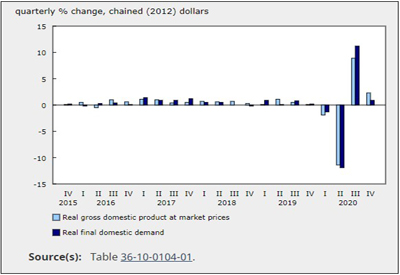It’s Not the Scheme You Run, It’s the Players on the Field (Part 2)

Many companies are finding themselves in a difficult position these days. There are growth opportunities everywhere they look, but they are unable to find the talent required to take advantage of the abundance. In the first part of this article, I looked at the need for organizations to become year round recruiters. You can try every organizational scheme or technology fix in the world, but it all comes down to the players in your company. I challenged companies to develop their value proposition. Not to the customers they supply; rather,their unique selling points to a prospective candidate.For many, this is an entirely new shift in focus.In this article, I will talk about where to look for candidates and how to develop them into productive members of your growth plans.
The most successful organizations build strong training programs.They invest in training just like any other growth opportunity in the market.These companies have come to the realization that they will never be able to expand without talent. Sure they could hire talent, but it often comes with baggage. Let’s be honest here, how many times have you gone out and hired hot shot sales people, at a less than comfortable financial investment, just to have them wash out a few years later. Sure, they had industry knowledge and a solid set of skills, but they just didn’t fit into your organization.It happens all the time.
I am not saying that it is always a mistake to hire a seasoned pro. A few years ago, my younger brother broke tradition and brought in a sales manager from a long standing supplier relationship.This has been a phenomenal hire. One of the keys to the success of this hire has been a sense of humility on both the part of the outside player and the management team. Humility should never be confused with being less than or humiliation. My favourite definition of humility is the ability to remain teachable. This candidate had also spent a great deal of time working with the sales organization, so there was a history of trust before the change was made.
The situation I describe is the exception, not the norm.Most companies have to grow their own hot shots.This is where an exceptional training program must be developed and nurtured. I have always believed that companies are better off recruiting great customer service people, rather fishing for someone from the industry. I can teach someone product and application.I will have a far more difficult time teaching attitude and behaviour.
Last week, I had an interesting conversation with a client.We were on the topic of recruiting, like every one of my clients these days, and he mentioned a server at a restaurant he frequents.He really liked the way the person treated the customers and his efficiency.He felt that this was the type of person he would like to see in their organization.I challenged him to not just go after this type of person, but go after the person. He liked the way this person worked. I told him to take a chance and invite the server in for a conversation. What do you have to lose? Too often, we encounter people in the service community that would make great additions to our organization, but have this mental block about recruiting them. Just like my client, I challenge you to push past this fear and just ask them if they would be interested in a change of career.You will never win the lottery if you don’t buy a ticket.
Training people
Now that we have a few fresh faces on the floor, what do we do with them? Many of our training budgets took a hit during the first part of the decade. Understandable. We were in survival mode and had to get lean. Now that prosperity has returned, employee development must become a strategic initiative for the company. I believe that an organized plan of attack should parallel the intended advancement progression in your company. Don’t have a defined progression? I suspect that one is lurking in that space between your ears.
For many mature distribution companies, seasoned employees started in the warehouse and worked their way into greater levels of responsibility. Transportation and logistics activities may have been part of the early years. At some point, our developing team member was exposed to the sales side of the business through a counter or a phone. From this point, there may have been a divergence to operational management, procurement, financial processing or customer-facing sales functions. The point is that there has always been a loose advancement path.I am just asking that you spend some time defining it so that we can help people apply training at key intervals.
Several years ago, I worked with a client in the pool industry on a similar project. Essentially, we were trying to figure out how to shorten the learning curve for a person on their front counter. In order to tackle the problem, we broke the counter down into four basic skill levels. In each level, there were a number of skills, procedures and products that needed to be mastered for advancement. To track the progress, we created an Excel workbook. Each sheet of the workbook detailed the requirements for the position. This made it very easy for team members to direct their own progression. As they would complete a level to the satisfaction of the general manager, the individuals would be given a little bump in compensation and start into the items required for the next level.
Ultimately, we were able to get people ready to move into a supervisory role in a shorter period of time. This gave the owner the flexibility to pursue expansion opportunities as they presented themselves. Because we created this in Excel, the document could be added to and manipulated as the situation changed. I am currently working on this with another client. In order to spread out the load, sections of the document are being assigned to different managers. Reporting on assignments has become a regular part of the weekly meeting.
Promoting personal development
Beyond specific skill building for the company, many successful companies have developed a personnel development program in the organization. Team members are encouraged to develop skills at educational offerings outside of the company.On a personal note, my world really opened up when I started attending seminars outside of my company.Up until that point, I was subject to the ideas and methodologies running around the four walls of my company. Attending the University of Industrial Distribution event, now called the University of Innovative Distribution, was one of the most eye opening points in my career. I later attended the inventory management seminar that I now teach. Both of these events and several smaller meetings allowed me to inject new ideas into the company. Today, education is a staple of my former family business.
Don’t be limited by education that is industry specific. Some of the most impactful education can be found locally. Who couldn’t benefit from a little foreign language immersion? There are technology seminars and local college programs that can be accessed for very reasonable amounts of money. By offering a diverse menu of educational options, employees feel that their best interests are being served. This is the key to retention.
Before I leave you, I wanted to point out a word of caution. Some supervisors in your company will not embrace employee development. There is a fear that advanced training will make employees targets for other companies. That certainly is a possibility.Your team members may start looking around as well. This is out of your control.All you can do is provide the best opportunity for learning and make the company attractive enough to have people stick around. If they leave, so be it. If they return, even better. As a manager, I believed that it was my responsibility to make people in my team better than when I found them. A friend of mine describes this a “servant style leadership.” I just call it good business sense.
I encourage you to focus on recruiting and development. Make it one of your key initiatives this year. Read up on the recruiting tactics of larger entities and don’t be afraid to look in unlikely places for candidates. Business fads will come and go, but good people never fall out of fashion.
Curious about Part 1 of Jason Bader’s article? Read it here.
Jason Bader is the managing partner of The Distribution Team, a firm that specializes in helping distributors become more profitable through strategic planning and operating efficiencies.The first 20 years of his career were spent working as a distribution executive.Today, he is a regular speaker at industry events and spends much of his time coaching individual distribution companies.For more information, call (503) 282-2333 or contact him by e-mail at Jason@Distributionteam.com.Also visit The Distribution Team’s website at www.thedistributionteam.com.











